For example about the same time we learned that the female prosecutor in the Georgia Trump election case, a Democrat, has been having an affair with an attorney she brought on to help out, the Florida Republican chair was fired because he and his wife engaged in a threesome and the other woman involved accused him of not-so-nice activities.
So, I thought it would be appropriate to have a look at what makes Republicans and Democrats tick when it comes to such bedroom activities. What do members of each party like to do in the bedroom (or shower, or anywhere else…)?
To answer that question we have with us Bella Cummins, who has for years owned and operated a legal brothel in the rural community of Wells, Nevada. She surveyed some of her “politically transparent” clients to find out.
Bella Cummins, who wants to be known as “America’s Madam,” is America’s longest-serving living legal brothel owner as the proprietor and operator of Bella’s Hacienda Ranch, a licensed brothel located in Wells, Nevada. She says her adult entertainment destination in Northeast Nevada provides a safe and lawful option for courtesans to prosperously practice their trade. Serving customers from across the globe, Bella’s offers a myriad of exclusive amenities, including VIP accommodations and a selection of erotic specialty rooms.
The 74-year-old Cummins also founded the Onesta Foundation, a nonprofit organization with a mission to support Nevada sex workers and advocate for prostitution legalization throughout the United States. More on the Onesta Foundation can be found at https://onestafoundation.org.
Here are some questions we discussed with Bella:
Q. Tell us a little bit about Bella’s Hacienda Ranch – how you came to purchase it and why, and what you guys do there.
Q. Have you worked as a prostitute yourself? Has this been a rewarding experience?
Q. Over all these years, how many sex workers have you employed and how many customers have been served?
Q. What prompted you to survey “politically transparent” clients to determine who likes what when it comes to sex? BTW, what does “politically transparent” mean?
Q. OK, what are some of the key differences that your survey revealed? What do Republicans like more than Democrats, and vice versa, when it comes to sex?
Q. Any idea why that is? Q. Any ideas why so many politicians get into trouble over sex?
Q. Tell us about the Onesta Foundation and what you do there.
Q. Why should prostitution be legalized? Who would benefit from that?
Q. You say that regulations need to accompany decriminalization. In what form?
Q. Sex work is dangerous…how so?
Q. Wouldn’t legalization of prostitution promote human trafficking?
Q. Do you really see this country legalizing and regulating prostitution, especially with the outsized influence of the right-wing Christian conservatives on government policy these days?
Show Notes
Play
00:00
00:00
Mute
Settings
AirPlay
Whatever happened to the concept that before making a decision it's wise to listen to both sides of the story?
That's the idea behind Ponderly, a new social media platform that’s intended to be a safe and engaging space where users can get the facts, consider the other side, and decide what to think.
The point is to cut through the rhetoric, lies and misinformation that is spun out on major social media platforms and help bring people together, and we have as our Lean to the Left podcast guest Amir Shiekh, Ponderly's founder, whose goal is to cut through the rhetoric on sensitive and controversial issues and reduce the divisiveness that has become so prevalent in our society.
Unlike other social media platforms, Ponderly provides short, quick-read articles about key issues in the news with writers offering analysis, pro and con.
An example: Should razor wire along the southern border be removed? Read both sides of the story and then decide and comment.
In this episode, Amir explains Ponderly's goals and objectives, how it works, and even how writers can get involved. While the platform is brand new and still being tweaked, Shiekh says subscribers now number "in the thousands" and plans are for it to grow dramatically in the years ahead as it provides an alternative to Facebook and other social media platforms.
Show Notes
Don’t forget to follow Lean to the Left at podcast.leantotheleft.net, and you can reach me at bob@leantotheleft.net. You can also follow us on social media…Facebook at The Lean to the Left Podcast. Twitter at LeantotheLeft1. YouTube at Lean to the Left, Instagram at BobGatty_leantotheleft, and TikTok at Lean to the Left.
If you would take a minute to give us a review, that would be great. There are lots of podcast links on our webpage, podcast.leantotheleft.net, where you’ll also find our upcoming interview schedule and links to all of our podcasts.
I hope you’ll come back on a regular basis and check out our interviews with guests on topics that I hope you find interesting, entertaining, and enlightening.
Our interview shows stream weekly on Mondays, and depending on what’s going on, also on Thursdays, and most are produced as videos available on the Lean to the Left YouTube channel.
Also, let your friends know about this podcast and take a minute to subscribe yourself. Just go to podcast.leantotheleft.net to subscribe, check out the upcoming interview schedule, and listen to all of our episodes.
Remember, our goal is to be informative and entertaining as we comment on the latest developments in the news…you guessed it…with just a little lean to the left.
This show is part of the Spreaker Prime Network, if you are interested in advertising on this podcast, contact us at https://www.spreaker.com/show/4719048/advertisement
Show Transcript
Ponderly: Just the Facts, Ma'am
[00:00:00] Bob Gatty: Today we welcome Amir Sheik, founder of Ponderly, a new social media platform that's intended to be a safe and engaging space where users can get the facts, consider the other side, and decide what to think. The point is to cut through the rhetoric, lies and misinformation that spun out on major social media platforms and help bring people together. It's an interesting concept, so stay with us.
[00:00:31] Hey Amir, thanks for joining us on the Lean to the Left podcast. I really appreciate it, buddy.
[00:00:35] Amir Schiekh: Hi Bob. Thanks for having me on. I appreciate it. Yeah.
[00:00:39] Bob Gatty: Hey, tell us about Ponderly and what it's all about, man.
[00:00:43] Amir Schiekh: Yeah, sure. So Ponderly has been something that evolved from we, we called it ForB initially. And essentially it's a, it's an answer to the bias and misinformation and all of the other issues we see all around us in society today. And you, when you look at the mainstream social media platforms, when you look at the mainstream platforms regardless of, what political side
[00:01:06] or group you're on. There's, it's present and it's harmful to individuals, it's harmful to society. And so we wanted to offer an alternative that wasn't, the same thing what everybody else is doing, which is, Hey, trust me, I'm gonna tell you the truth.
[00:01:21] So our strategy's a little different where we purposefully present two sides of whatever the topic is. And we let you know there's two sides and then you have the complete picture and you can be more informed and make better decisions. So that's essentially what makes us different.
[00:01:36] We also integrate a lot of social media features within the platform outside of the content that, that we do create. But really it's an alternative to the options we have today.
[00:01:47] Bob Gatty: Was this your idea?
[00:01:48] Amir Schiekh: Yeah. Yeah. It, it was initially the idea came from that feeling of frustration with friends and family.
[00:01:53] Just, the disagreements and, you can see people who are just misinformed, all of the things I mentioned, and I said I could just keep getting frustrated and bang my head against the wall or, try to find a solution. And so that's where it started and it evolved over time.
[00:02:07] Okay.
[00:02:08] Bob Gatty: So now you have a actual company built to to run this thing? Yep,
[00:02:13] Amir Schiekh: yep. We do. We have a small team and a lot of our writers are independent contractors. But but yeah, no it's been slowly growing and we've been really proud of what we've accomplished. Cool.
[00:02:24] Bob Gatty: Your website states that Ponderly has a large diverse group of writers. You just mentioned writers and editors who deliver short fact-based content that's cited and easy to read. So tell us about that component of Ponderly.
[00:02:41] Amir Schiekh: Yeah. We don't advertise it, but most of our articles, they're approximately 500 words range.
[00:02:47] And so each writer gets about 250. Couple reasons we do that. Our target demographic is Gen Z and millennials and they're always busy. I'm not sure what they're busy with, but we wanna try to accommodate their lifestyle. Sure. Also it forces the writers to really get to the point.
[00:03:03] 250 words as most people know, is not very many. And so you really have to get to the facts and the processes, they have a guideline. And then we have internal editors that you know that also go over it. And then we have a third person that checks it as well. And it's really important for Ponderly to stay neutral in this process regardless of.
[00:03:21] We're all humans. Everyone that's part of the team. But, we have some ethics and some procedures, and then we check each other to ensure that it's not even it doesn't even come down to the facts. A lot of it is I. You can give somebody a little bit more coverage or you give someone a little bit more time or less time or whatever.
[00:03:37] There's so many different ways to, to insert like bias both consciously and unconsciously. So we have to really be careful and cognizant of that.
[00:03:45] Bob Gatty: Yeah, Amir, I just wondered, do you have a news background or journalism background?
[00:03:50] Amir Schiekh: I do not, no, I do not. I come from a business world.
[00:03:53] Okay. So I had, I have I don't have that background at all.
[00:03:56] Bob Gatty: Yeah. But you have people that do who are on your team,
[00:03:59] Amir Schiekh: right? That's correct. Yep. I'm the probably the least qualified on my team.
[00:04:05] Bob Gatty: The guy in charge is the least qualified. That's always good. Yep. Is there a way on Ponderly for subscribers to comment on articles or otherwise express their views regarding the content?
[00:04:18] Amir Schiekh: Yeah, so that's really what we've been working really, in the back end with the social media companies that are out there is to take some of the more, most popular features and integrate that with our content and media. So not only can you comment but when you engage with the platform, a lot of those activities go to your profile automatically.
[00:04:37] And so let's say if you have an account. And you interact with Ponderly, I can now just go to your profile and I know a lot about Bob and what your views are and what you think about certain things. And then further we have a gamification, which we're integrating, so you actually get rewarded for example, making productive comments or voting on articles and such.
[00:04:56] So really to encourage that productive engagement, what
[00:05:00] Bob Gatty: did you call it? Gamification.
[00:05:02] Amir Schiekh: Gamification. Yes. Basically just it sounds like a lot of the games, they have rewards and badges and points and things like that. Yeah. So we're we've integrated that and okay. Our points actually you can redeem for merchandise actually.
[00:05:14] Once you can, once you earn enough. Okay. But other things is, for example, we have a posting section. What are you pondering where you can post content just like social media, but for us, you actually have to, you actually have to use a point for that. And so the, in order you don't have to pay for that.
[00:05:30] You, you engage with the platform to earn that. But the thought is, quality over quantity. We don't want 10,000 posts. We'd rather have, a thousand and they're higher quality and if people have to earn it, they're probably more likely to spend more time on it.
[00:05:44] Bob Gatty: Is there a charge for people to participate with Ponderly?
[00:05:48] Amir Schiekh: No. There is not there. We do have other tiers where it, you get other benefits, but for the average person there's no cost at all.
[00:05:56] Bob Gatty: Oh, okay. Is there advertising allowed on it?
[00:06:01] Amir Schiekh: You mean if somebody wanted to advertise? Yeah. They could we're not right at the stage we're at right now, we're still, adding feature, developing and growing.
[00:06:09] So that's not a huge thing, but, yeah. Hypothetically, yes, you could.
[00:06:13] Bob Gatty: I'm just wondering where you get your revenue from if it's free to participate? Yep. And you don't have advertising? How are you making any money out of it?
[00:06:21] Amir Schiekh: Yeah, so we have we do have ads that, that run auto ads. Okay.
[00:06:25] And then we have a subscription. So the subscription, it's a monthly subscription for $4 and you get a bunch of benefits with that. Okay.
[00:06:33] Bob Gatty: So in order for me to participate in Ponderly, I gotta subscribe for four bucks.
[00:06:39] Amir Schiekh: No, you do not. Oh, that subscription is additional benefit oh, yeah. Yeah. So every, you come on Ponderly, everything is free.
[00:06:46] Okay. However, for example, if you wanna start messaging random people or multiple random people, then you know, you either have to have points which you can earn. If you engage with the platform or if you're a subscriber also gets you like a special designation. There's some posting advantages, so there's other advantages you get from that.
[00:07:05] But for the average person, there's no cost.
[00:07:08] Bob Gatty: Okay. All right. Do you envision Ponderly competing against Facebook and X and LinkedIn and all of that?
[00:07:15] Amir Schiekh: Yeah. All of those you just mentioned they're partial competitors. There's nobody really doing exactly what we're doing because they're in the social media.
[00:07:21] They don't produce their own content. And so partially, yes we are, ul ultimately we're providing an alternative for people who are just fed up with the choices that they have, the crowds that they have, the trolling, the clickbait. Yeah. And just like the unproductive conversations and really want to get like-minded people who are open-minded, and who wanna have real conversations versus just yell and shout at each other.
[00:07:44] Bob Gatty: Yeah. Okay. Amir, I'm just wondering how, when did you begin this? How long has it been underway and how's it going? How many subscribers. Would you say you have now?
[00:07:57] Amir Schiekh: Yeah. We started around the Covid time. Since then I've been bootstrapping it in a lot of A-B testing, a lot of focus groups, things like that.
[00:08:05] And we're in the thousands as far as as far as users. Okay. And but we haven't had any aggressive marketing campaigns. This is, we're starting with the like the podcast, which is why I'm on here and other such things. And, right now, it's probably not beneficial for us to hit the gas and bring on a, a hundred thousand users overnight.
[00:08:25] We want to really make sure that this is the product in every way that people want to use. So we're getting feedback as people come on and learning and making adjustments. Okay.
[00:08:35] Bob Gatty: I really like the idea. I think it's a terrific idea. For sure. Now you say that. With information overload. We are the most misinformed generation.
[00:08:47] I got that from something your people sent me or you sent me. How does Ponderly combat this issue and ultimately bring people together do you think? I.
[00:08:58] Amir Schiekh: If you see any article, and we have, we're, we have 13 categories from beauty to news and politics to technology and science.
[00:09:05] So it's not necessarily all fighting topics per se, right? Sure. But I think the biggest way we do that is we purposely show that there's two main sides to whatever the topic at hand is and we present it in a non fighting threatening way. And the goal is, let's say if you think the earth is flat, for example, which Baba, I'm not sure what you do, but I'll just for the.
[00:09:28] No, I don't think the earth is flat. All right, so let's say you think the earth is round. And let's just say if I say the earth is flat, right? I wanna make a, make an environment where you're not laughing at me and I'm not making fun of you and all those things. And we can talk, and then hopefully at the end of that, maybe, you can convince me or maybe I can consider maybe the earth isn't flat or vice versa, and so on and so forth.
[00:09:51] And so it, the challenge is creating that type of environment. It's similar to how nice restaurants operate, where if you go to a McDonald's, the rules in McDonald's are probably not far off of a rules in a five-star restaurant. But when you have the decor, when you have the menu, when you have, all of the other things that a restaurant has, people just automatically behave differently.
[00:10:13] And those same people can go to a McDonald's and they'll, a lot of their formalities will go out the window because the environment is different. And for us, the gamification I talked about a lot of the way that we present the content in a neutral way and purposely bringing both sides and a lot of other features that we have contribute to that, nice restaurant environment and so we can limit some of that.
[00:10:38] Bob Gatty: Yeah, I went on, I went online and looked at some of the material on Ponderly. And some of the articles I particularly looked at the politics section 'cause that's kinda my shtick. And I was impressed. I saw one piece. I think the question was are local politics or local elections more important or less important than national politics and national elections.
[00:11:05] And you had two writers one taking local, the local perspective and the other taking the national perspective and within as you say, what, 250 words they made their case. And then there was room at the bottom for people to comment. I just thought that was terrific.
[00:11:24] Amir Schiekh: Yeah, no, absolutely. And I think and I'm sure, and I'm assuming you were the same way, when people come on the platform, the first thing it's human nature they try to do is is this left leaning?
[00:11:34] Is this right? Leaning? What's the bias, what's the angle? What's their goal? Yeah. And that's automatic because every we have learned and we've been conditioned that everybody does it. And so that's really where, we're we're different and we really have to gain that trust and we have to make sure we never we never compromise is that, that keep that neutrality regardless of, again, we all have our personal views, but those views can never manifest on the platform.
[00:11:59] Okay.
[00:12:00] Bob Gatty: All so we've seen that, we've seen a lot of commentary and I've had people on my show talking about this all the time, about the harm that social media has placed upon our country with people being so fighting against each other all the time. Almost it seems like most people participate on platforms they feel comfortable. So right-wingers are on the right-wing platforms and left-wingers are on the left-wing platforms, and never the twain shall meet. So they end up in a, in an echo chamber where differing views are not expressed. That's just the opposite of what you're doing.
[00:12:45] Amir Schiekh: Yeah. No our strategy is not to create tribes or bubbles or, separate groups.
[00:12:51] Our. Goal is to bring those groups together, or at least expose them, expose the groups and in a productive discourse environment. Okay. And I think yeah it's really important that, what you just mentioned that issue is to, first of all, be aware that most people don't even know, that they're participating in that, they think that because they're in the bubble, they're in their own bubble. And really the first step is really just to understand Hey, I am in a bubble. We all are to a certain extent in a bubble. It's just some of us are, more or less aware of it.
[00:13:23] Bob Gatty: How what do you see as the future for Ponderly and what do you want to achieve overall?
[00:13:30] Amir Schiekh: Yeah, I think once we get some of these last-minute tweaks in, it's really going to be an alternative for, a lot of the social media. You have your X you have Instagram, you have TikTok to a certain extent in this category.
[00:13:43] And then you have, the media, from the top, like the CNN and the Fox. And then we can go down the list of all of them, and. I think a lot of the trolls I'll call I'll use troll as the word for now. And extreme. Extreme people on every side, unfortunately take up most of the bandwidth, and they represent the masses even though they don't represent the masses.
[00:14:06] And social media is partially to blame for that because a lot of the algorithms promote. Extremism or some of the loudest or obnoxious people. But I think the majority of the country and the majority of the world, people are generally good and people are not crazy and, they generally don't want to cut each other's heads off.
[00:14:23] And so I think that's where, we want to focus on for the most part is that majority who's you know what I. I do listen here. I do participate here, but I'm not really happy about it. But I don't really have a choice because this is the best option I have. And so for those people I wanna provide this platform where they really have a viable alternative, where they don't have to sacrifice any of their functions and, they can be happy and feel at home and connect with people who also feel the same way as them.
[00:14:50] Bob Gatty: Now you mentioned that you guys are doing some tweaks. You have some things you wanna fix and improve still. But people, you've, you said you have about a thousand subscribers, so how can people get involved? Now?
[00:15:06] Amir Schiekh: We're on the App Store and the Google Play Store. Just under Ponderly P-O-N-D-E-R-L-Y.
[00:15:13] And yeah we're more than that. We're in the thousands, but but yeah, I think just download the app check it out and participate, comment and, we're adding features on a regular basis, but it, this is something that is a grassroots movement that's, not only a good platform, but it's also I think, much needed in society today.
[00:15:32] Bob Gatty: Amir, this is only though on iPhone, right?
[00:15:36] Amir Schiekh: No, it's on Android Google Play Store. Yeah.
[00:15:39] Bob Gatty: Okay. But it, you can only do it on your phone. You can't do it on a desktop.
[00:15:43] Amir Schiekh: No, we do have a website as well. We really don't like to direct people there because the user experience is not the greatest on the website.
[00:15:49] Okay. It, it's designed for the app, so the app, app store, and then the Google Play Store is where the preferred is. But we do have a website as well.
[00:15:58] Bob Gatty: Okay. But for most people, they should participate by using their phones, either an iPhone or their or their,
[00:16:07] Amir Schiekh: google phone or whatever. Yeah, just go to their app store and then just type in Ponderly and yeah, we're the only Ponderly
[00:16:12] Bob Gatty: Check that.
[00:16:13] Yeah. Where'd that name come from, by the way?
[00:16:15] Amir Schiekh: Yeah that's a fine. 'cause we started with four B around the time of co covid and that was short for fourth branch of government, which is obviously no, no branches to people. And then as it evolved, and we did a lot of again, focus groups and a lot of hair pulling and going back and forth and also what was available, it was pondering.
[00:16:34] It was the thought and then Ponderly was available. And that's how it, that's how it came. But it actually was shockingly a very long and a stressful experience to get to that level. Yeah, I
[00:16:44] Bob Gatty: imagine so. But it's a cool name. I like it. What about people that wanna write for you guys?
[00:16:50] Amir Schiekh: Yeah. So what should they do? Do we do have a, we do have a writer base. I think w there's a submission process. So if someone is interested, they can submit the resume to submissions at Ponderlee.com. And so we do take we do consider other writers. We have in-house editors, so they go through and evaluate their pieces and then, go from there.
[00:17:09] But we do take writers in.
[00:17:11] Bob Gatty: Okay. Alright, good. Did you have anything else you'd like to add?
[00:17:15] Amir Schiekh: Yeah, no, I think, for now, I really appreciate your time and I appreciate everybody that's listening and would love the support. Just Ponderly like I mentioned on the app store and we'll continue to grow and make a positive difference in, in society.
[00:17:28] Bob Gatty: All right, great.
Listen On
Also In Season 4
-
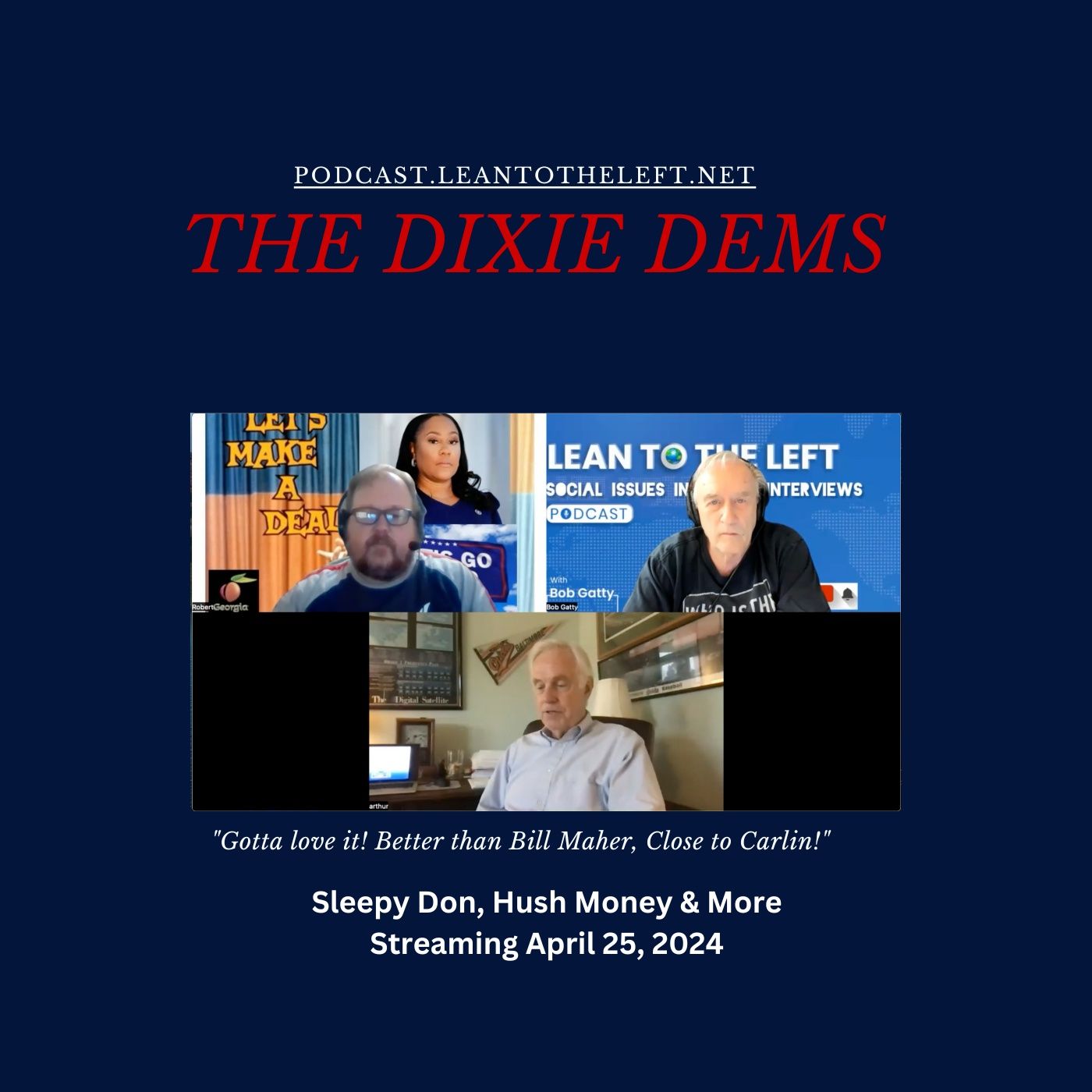
Dixie Dems-Sleepy Don, Hush Money & More
In this episode of the 'Lean to the Left' podcast, the Dixie Dems, composed of A -
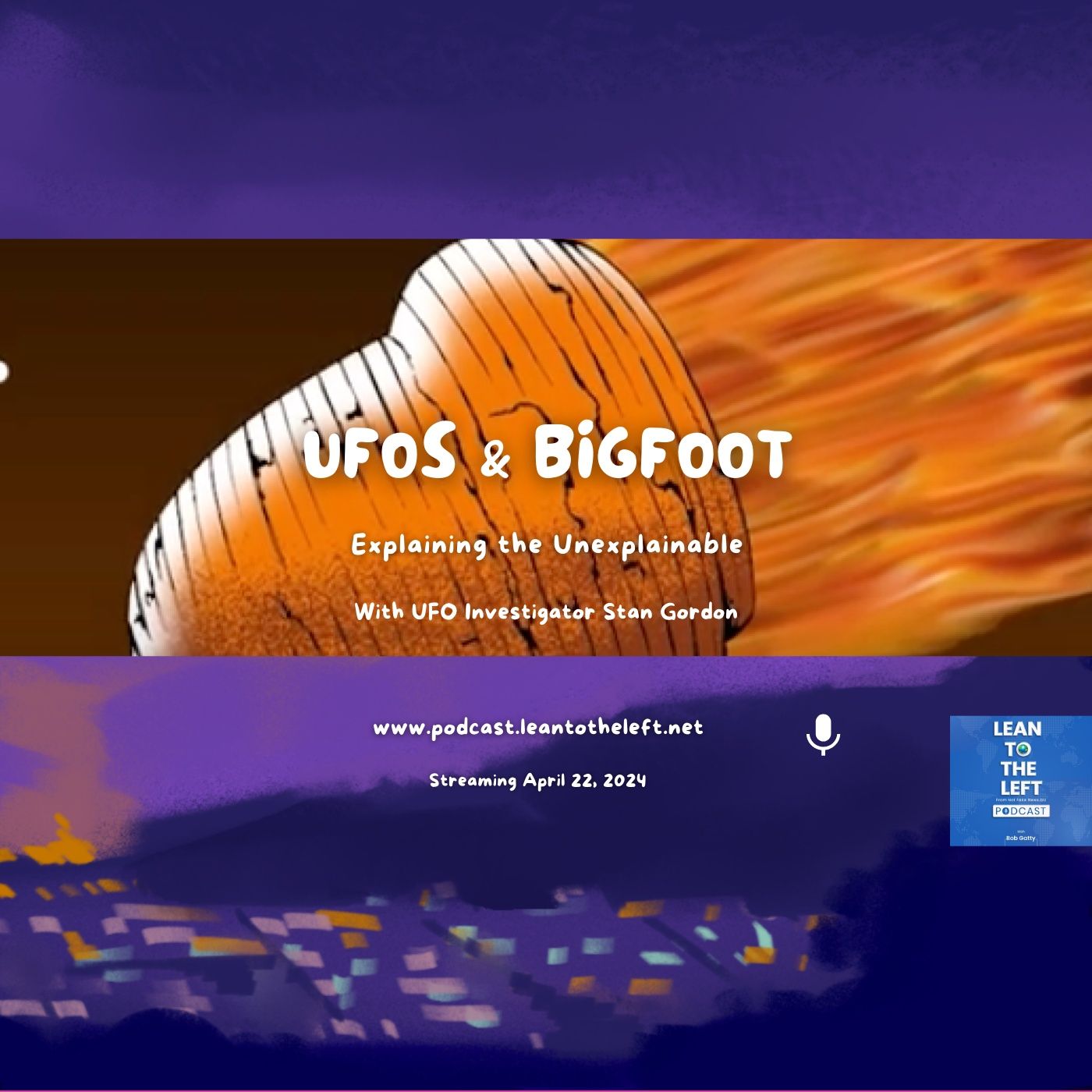
UFOs & Big Foot-Explaining the Unexplainable
Uncover the truth behind 'The Kecksburg UFO: The Story of the Century' with UFO -
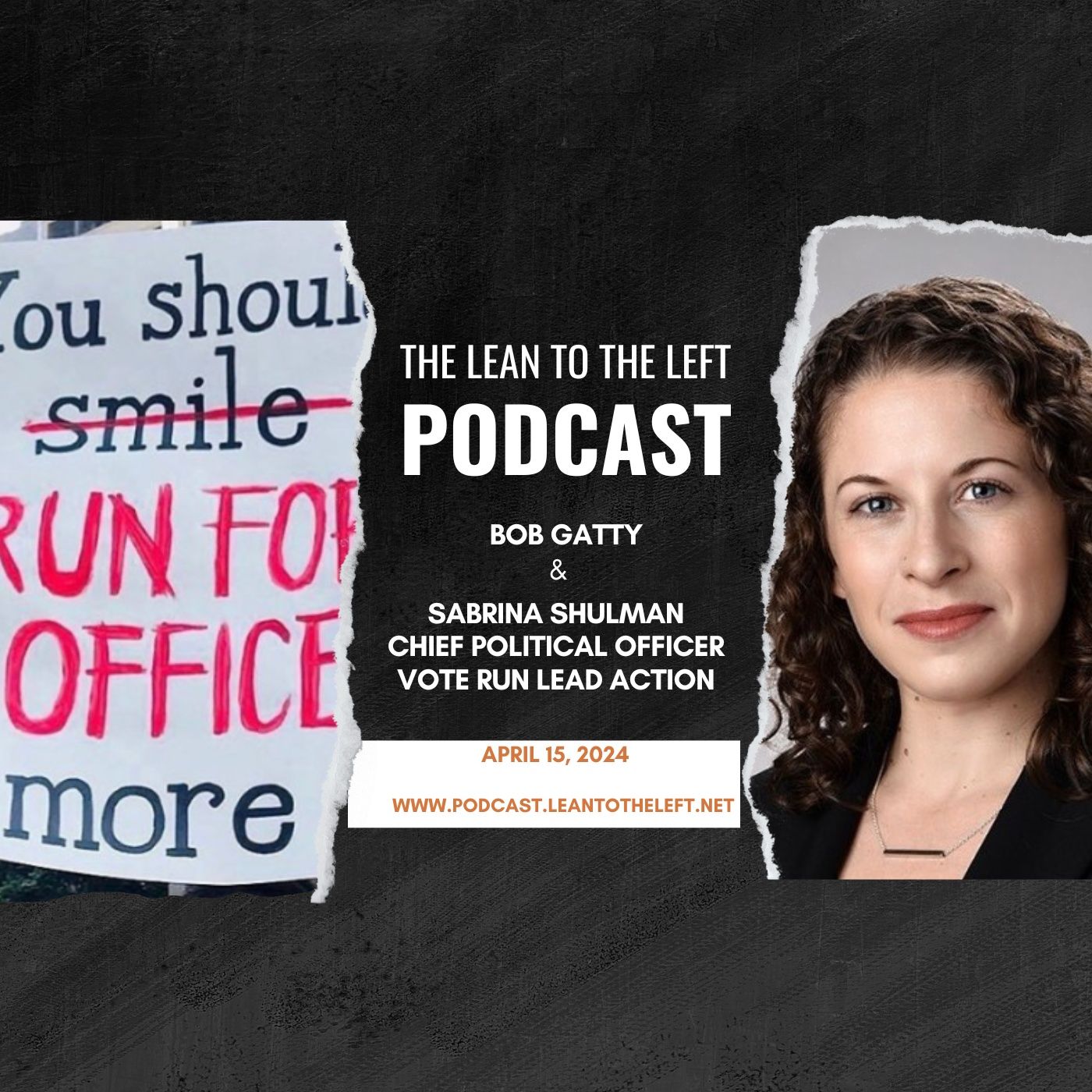
Calling Female Candidates
Women are 51 percent of the U.S. population, but only 33 percent of state legisl -
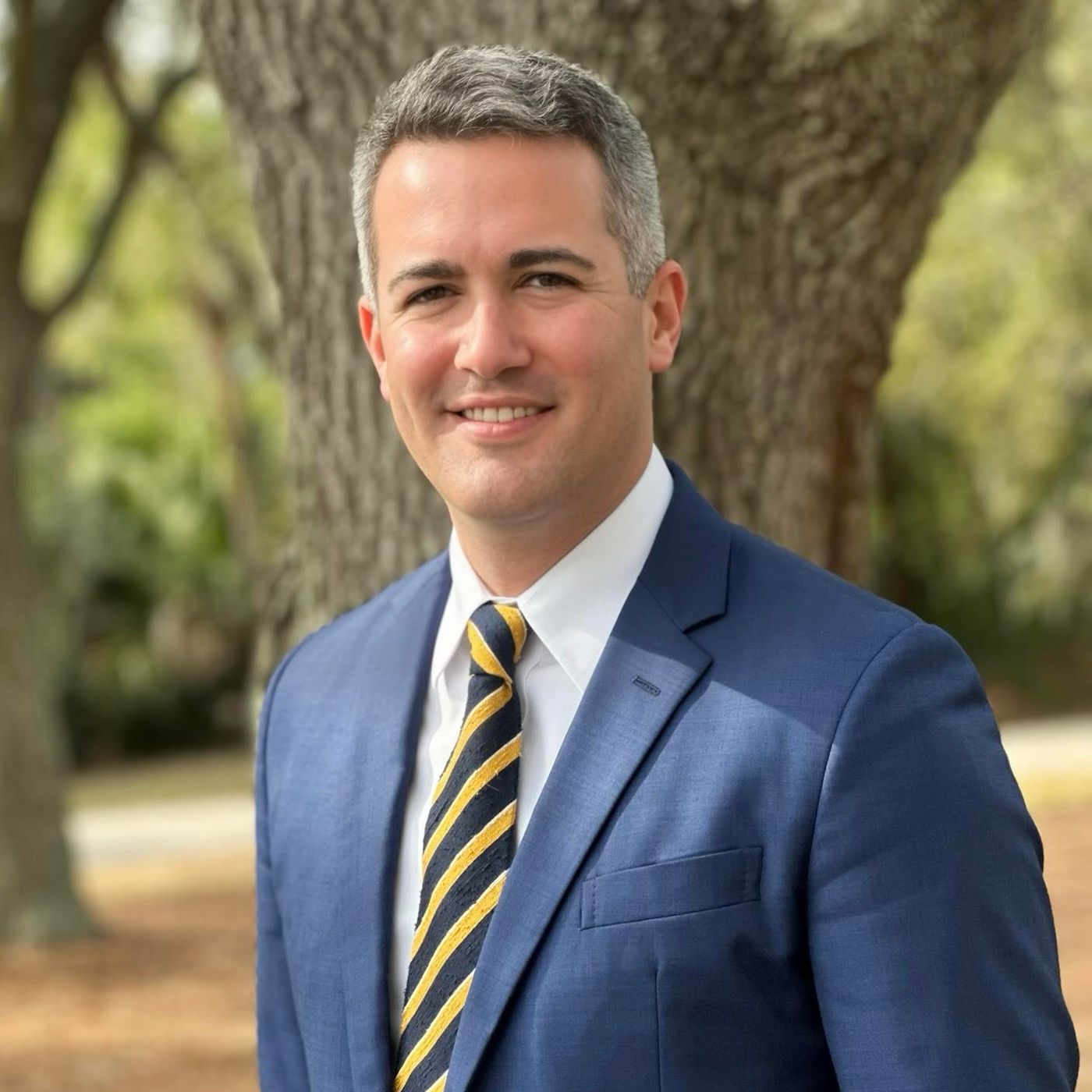
Mac Deford-Bucking the Odds in SC
In 2020, Republican Rep. Nancy Mace of South Carolina’s First Congressional Dist

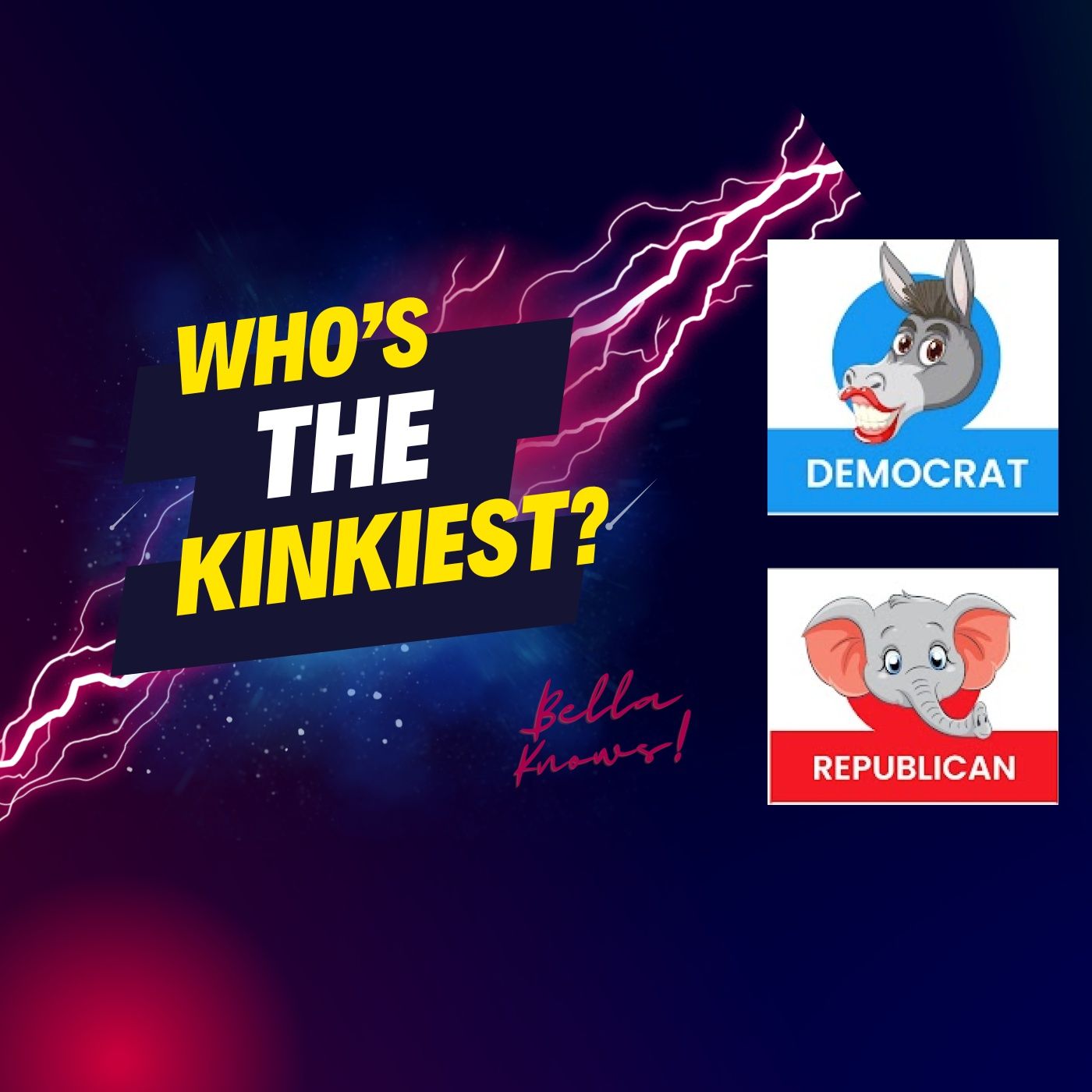
Comments & Upvotes